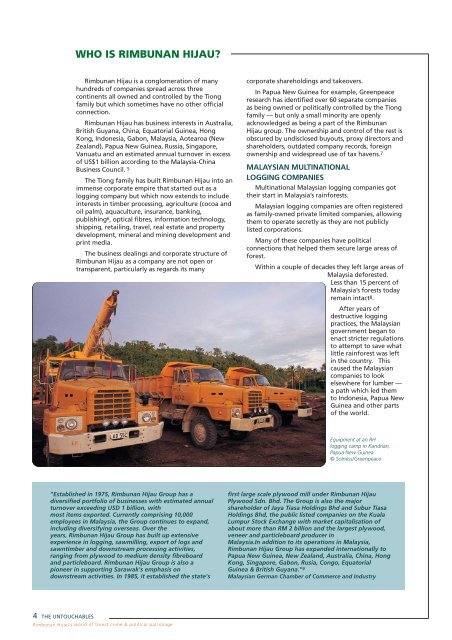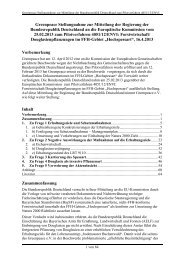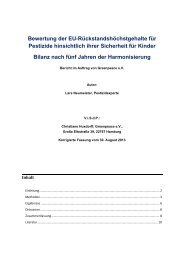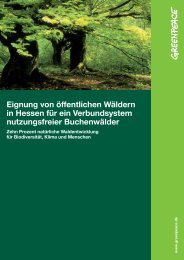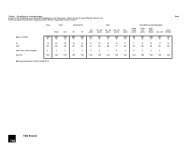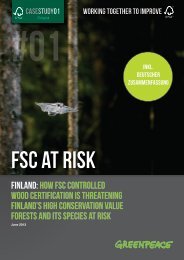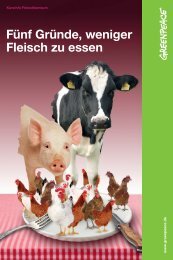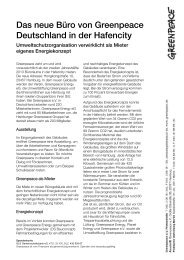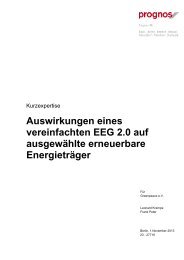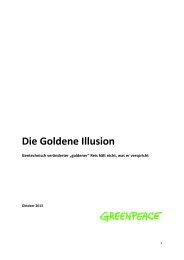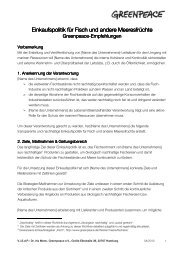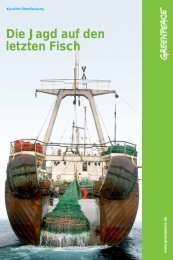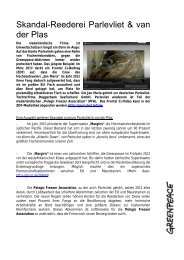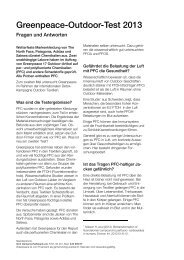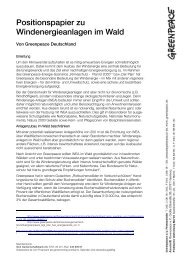The Untouchables. Rimbunan Hijau's world of forest crime & political ...
The Untouchables. Rimbunan Hijau's world of forest crime & political ...
The Untouchables. Rimbunan Hijau's world of forest crime & political ...
You also want an ePaper? Increase the reach of your titles
YUMPU automatically turns print PDFs into web optimized ePapers that Google loves.
WHO IS RIMBUNAN HIJAU?<br />
<strong>Rimbunan</strong> Hijau is a conglomeration <strong>of</strong> many<br />
hundreds <strong>of</strong> companies spread across three<br />
continents all owned and controlled by the Tiong<br />
family but which sometimes have no other <strong>of</strong>ficial<br />
connection.<br />
<strong>Rimbunan</strong> Hijau has business interests in Australia,<br />
British Guyana, China, Equatorial Guinea, Hong<br />
Kong, Indonesia, Gabon, Malaysia, Aotearoa (New<br />
Zealand), Papua New Guinea, Russia, Singapore,<br />
Vanuatu and an estimated annual turnover in excess<br />
<strong>of</strong> US$1 billion according to the Malaysia-China<br />
Business Council. 5<br />
<strong>The</strong> Tiong family has built <strong>Rimbunan</strong> Hijau into an<br />
immense corporate empire that started out as a<br />
logging company but which now extends to include<br />
interests in timber processing, agriculture (cocoa and<br />
oil palm), aquaculture, insurance, banking,<br />
publishing 6 , optical fibres, information technology,<br />
shipping, retailing, travel, real estate and property<br />
development, mineral and mining development and<br />
print media.<br />
<strong>The</strong> business dealings and corporate structure <strong>of</strong><br />
<strong>Rimbunan</strong> Hijau as a company are not open or<br />
transparent, particularly as regards its many<br />
corporate shareholdings and takeovers.<br />
In Papua New Guinea for example, Greenpeace<br />
research has identified over 60 separate companies<br />
as being owned or <strong>political</strong>ly controlled by the Tiong<br />
family — but only a small minority are openly<br />
acknowledged as being a part <strong>of</strong> the <strong>Rimbunan</strong><br />
Hijau group. <strong>The</strong> ownership and control <strong>of</strong> the rest is<br />
obscured by undisclosed buyouts, proxy directors and<br />
shareholders, outdated company records, foreign<br />
ownership and widespread use <strong>of</strong> tax havens. 7<br />
MALAYSIAN MULTINATIONAL<br />
LOGGING COMPANIES<br />
Multinational Malaysian logging companies got<br />
their start in Malaysia’s rain<strong>forest</strong>s.<br />
Malaysian logging companies are <strong>of</strong>ten registered<br />
as family-owned private limited companies, allowing<br />
them to operate secretly as they are not publicly<br />
listed corporations.<br />
Many <strong>of</strong> these companies have <strong>political</strong><br />
connections that helped them secure large areas <strong>of</strong><br />
<strong>forest</strong>.<br />
Within a couple <strong>of</strong> decades they left large areas <strong>of</strong><br />
Malaysia de<strong>forest</strong>ed.<br />
Less than 15 percent <strong>of</strong><br />
Malaysia’s <strong>forest</strong>s today<br />
remain intact 8 .<br />
After years <strong>of</strong><br />
destructive logging<br />
practices, the Malaysian<br />
government began to<br />
enact stricter regulations<br />
to attempt to save what<br />
little rain<strong>forest</strong> was left<br />
in the country. This<br />
caused the Malaysian<br />
companies to look<br />
elsewhere for lumber —<br />
a path which led them<br />
to Indonesia, Papua New<br />
Guinea and other parts<br />
<strong>of</strong> the <strong>world</strong>.<br />
Equipment at an RH<br />
logging camp in Kandrian,<br />
Papua New Guinea<br />
© Solness/Greenpeace<br />
"Established in 1975, <strong>Rimbunan</strong> Hijau Group has a<br />
diversified portfolio <strong>of</strong> businesses with estimated annual<br />
turnover exceeding USD 1 billion, with<br />
most items exported. Currently comprising 10,000<br />
employees in Malaysia, the Group continues to expand,<br />
including diversifying overseas. Over the<br />
years, <strong>Rimbunan</strong> Hijau Group has built up extensive<br />
experience in logging, sawmilling, export <strong>of</strong> logs and<br />
sawntimber and downstream processing activities,<br />
ranging from plywood to medium density fibreboard<br />
and particleboard. <strong>Rimbunan</strong> Hijau Group is also a<br />
pioneer in supporting Sarawak's emphasis on<br />
downstream activities. In 1985, it established the state's<br />
first large scale plywood mill under <strong>Rimbunan</strong> Hijau<br />
Plywood Sdn. Bhd. <strong>The</strong> Group is also the major<br />
shareholder <strong>of</strong> Jaya Tiasa Holdings Bhd and Subur Tiasa<br />
Holdings Bhd, the public listed companies on the Kuala<br />
Lumpur Stock Exchange with market capitalisation <strong>of</strong><br />
about more than RM 2 billion and the largest plywood,<br />
veneer and particleboard producer in<br />
Malaysia.In addition to its operations in Malaysia,<br />
<strong>Rimbunan</strong> Hijau Group has expanded internationally to<br />
Papua New Guinea, New Zealand, Australia, China, Hong<br />
Kong, Singapore, Gabon, Rusia, Congo, Equatorial<br />
Guinea & British Guyana." 9<br />
Malaysian German Chamber <strong>of</strong> Commerce and Industry<br />
4 THE UNTOUCHABLES<br />
<strong>Rimbunan</strong> Hijau’s <strong>world</strong> <strong>of</strong> <strong>forest</strong> <strong>crime</strong> & <strong>political</strong> patronage


